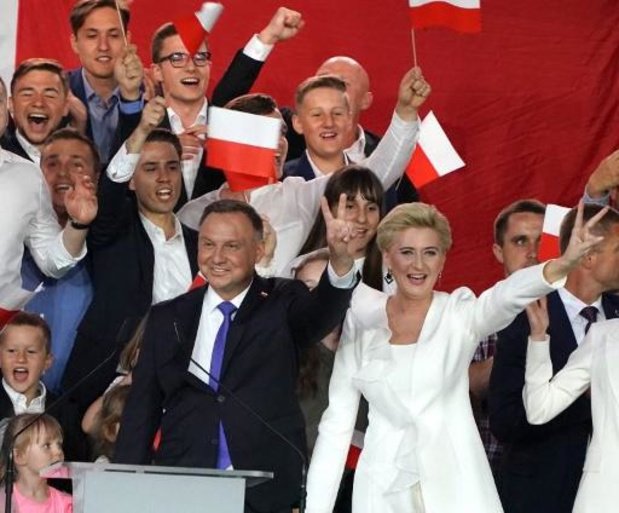Poland’s President Andrzej Duda, from the populist-conservative party PíS, has been re-elected this morning with 51.2% of the votes turning out in his favour.
Duda has ruled the country since 2015, introducing some of the strictest abortion laws of the EU. In his election campaign, his party called for a limitation to the human rights of the LGBTQ community.
Duda’s challenger, the liberal Rafał Trzaskowski, had hoped to break the conservative winds but lost with 48.8% of the votes.
Trzaskowski, who is currently the mayor of Warsaw, promised in his election campaign to protect minority groups and block some of Duda’s more conservative policies, which he feels are an attack on Poland’s democracy by limiting the courts and making way for authoritarian rule.
In the past five years under Duda, Poland has developed a difficult relationship with the EU. The European Council on Foreign Relations stated that if Duda was to be re-elected, Poland would likely “follow Hungary’s path towards a semi-democratic regime” and could become the EU’s “enfant terrible.”
The election campaign was allegedly marked by homophobia and antisemitism. Asked about the European Commission’s reaction at today’s press conference, the chief spokesperson replied that it is up to the national authorities to investigate such accusations and not the task of the Commission. In fact, the Commissions has expressed concerns about the independence of the judiciary in Poland.
Duda’s win consolidates the position of power his Law and Justice party (Pís) is currently in, making it likely that he will continue their ambitions of fighting “LGBT ideology” and limiting the independence of Polish judges.
According to Polish News, the liberal candidate Trzaskowski was highly popular among young voters aged 18 to 29. They reported that “if only young people voted, Rafał Trzaskowski would have won with a clear advantage,” seeing that Duda appealed mostly to older citizens from rural districts.
The elections took place in July rather than May after having been delayed due to Covid-19. Opposition parties had called on the government to reschedule, calling the alternative (a mail-in vote) a power grab by Duda’s PíS-party.
Amée Zoutberg
The Brussels Times

